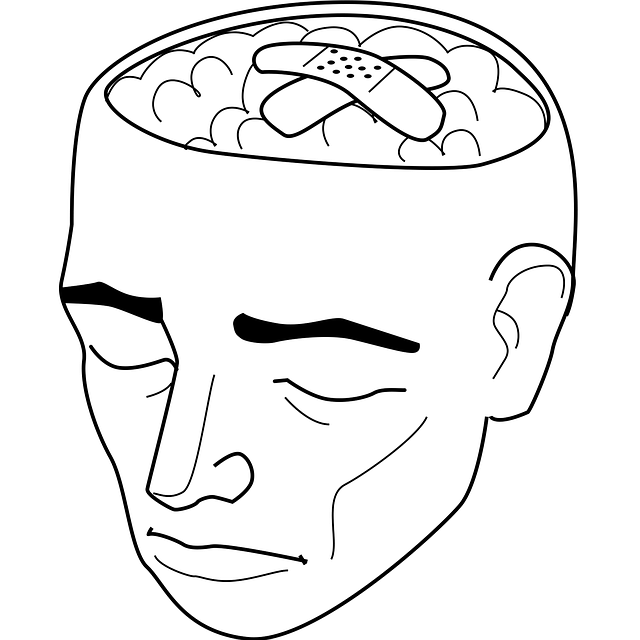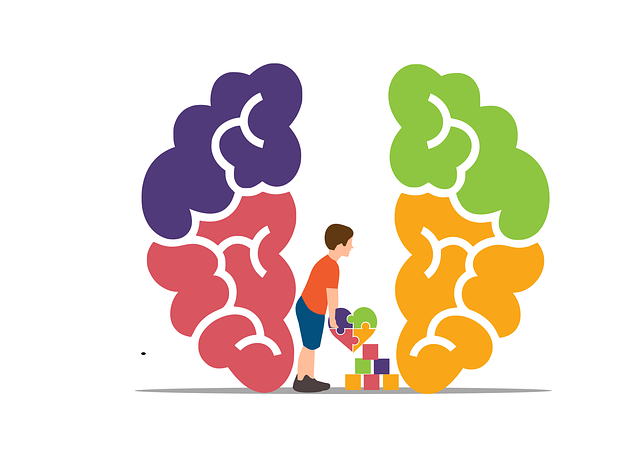Substance abuse poses significant risks, impacting physical and mental health, relationships, and overall well-being. Understanding these dangers is the first step towards recovery. This article explores comprehensive risk reduction strategies, focusing on tailored approaches like Parker ADD-ADHD Therapy, which addresses underlying conditions contributing to substance misuse. We delve into identifying personal triggers, promoting lifestyle changes, building support networks, and emphasizing continuous care for long-term success in overcoming addiction.
- Understanding Substance Abuse and Its Risks
- Identifying Individual Triggers and Vulnerabilities
- Parker ADD-ADHD Therapy: A Tailored Approach
- Lifestyle Changes for Risk Mitigation
- Support Networks and Continuous Care
Understanding Substance Abuse and Its Risks

Substance abuse, a complex issue, involves the harmful use of substances like drugs and alcohol, leading to significant physical and psychological risks. It’s a growing concern that impacts individuals across all demographics, with long-lasting consequences on health, relationships, and overall well-being. Understanding these risks is crucial in developing effective prevention and treatment strategies, such as Parker ADD-ADHD Therapy, which addresses underlying issues contributing to substance abuse.
Cultural sensitivity in mental healthcare practice plays a significant role in this context. Recognizing the diverse cultural backgrounds of individuals seeking help allows for tailored interventions. Emotional intelligence and empathy building strategies are instrumental in fostering trust and creating supportive environments that encourage open communication. By combining evidence-based therapies with culturally sensitive approaches, professionals can better navigate the complexities of substance abuse, ultimately promoting successful recovery journeys.
Identifying Individual Triggers and Vulnerabilities

Identifying individual triggers and vulnerabilities is a pivotal step in developing effective strategies for substance abuse prevention and risk reduction. Every person’s journey with addiction is unique, shaped by a complex interplay of genetic, environmental, psychological, and social factors. By understanding these personal triggers, individuals and support systems can proactively manage potential risks. This process involves delving into one’s history, recognizing emotional vulnerabilities, and identifying specific situations or stimuli that may trigger cravings or relapse.
Cultural sensitivity in mental healthcare practice plays a significant role here. Recognizing the impact of cultural background, socio-economic status, and diverse life experiences can help tailor interventions. For instance, Parker ADD-ADHD Therapy emphasizes the importance of personalized care, incorporating strategies for emotional regulation and stress management workshops within a culturally sensitive framework. Such approaches ensure that risk reduction plans are not only effective but also respectful of individual differences, fostering better engagement and outcomes in the journey towards substance abuse recovery.
Parker ADD-ADHD Therapy: A Tailored Approach

In the context of substance abuse prevention, Parker ADD-ADHD Therapy offers a tailored and innovative approach to addressing underlying conditions that may contribute to risky behaviors. This specialized therapy focuses on Attention Deficit Hyperactivity Disorder (ADHD) and Attention Deficit Disorder (ADD), recognizing their significant impact on an individual’s vulnerability to substance misuse. By employing evidence-based practices, therapists create personalized treatment plans that cater to the unique needs of each client.
The tailored nature of Parker ADD-ADHD Therapy incorporates not only cognitive behavioral strategies but also trauma support services and compassion cultivation practices. Risk management planning for mental health professionals is integrated into the process to ensure a safe and supportive environment. Through this comprehensive approach, individuals gain tools to manage symptoms, improve self-regulation, and develop healthier coping mechanisms, thereby reducing the risk of substance abuse and promoting long-term recovery.
Lifestyle Changes for Risk Mitigation

Making lifestyle changes can significantly mitigate risks associated with substance abuse. Encouraging individuals to engage in regular physical activity and adopt healthy eating habits can improve overall well-being, enhancing their ability to manage stress and make better decisions. Incorporating mindfulness practices like meditation and yoga, as supported by Parker ADD-ADHD Therapy, can also help reduce impulsivity and improve focus, thereby lowering the likelihood of turning to substances for coping.
Incorporate Mental Health Education Programs Design that teach individuals about the potential consequences of substance abuse and equip them with effective Coping Skills Development strategies. These programs should include Stress Reduction Methods such as deep breathing exercises and progressive muscle relaxation. By fostering a deeper understanding of mental health and empowering individuals with practical tools, these interventions contribute to a holistic approach to risk reduction, aiming to create a more balanced and healthy lifestyle.
Support Networks and Continuous Care

Building and maintaining a robust support network is an integral part of any successful substance abuse recovery plan. This includes both professional and personal relationships that provide continuous care and encouragement. At Parker ADD-ADHD Therapy, we emphasize the importance of connecting individuals with like-minded peers and specialists who can offer sustained guidance throughout their journey. A strong support system acts as a safety net, helping to prevent relapse by providing emotional backing, practical assistance, and coping strategies tailored to each person’s unique needs.
Incorporating self-esteem improvement techniques and empathy building strategies within this network is beneficial. By fostering positive relationships and learning effective stress reduction methods, individuals in recovery can enhance their resilience and sense of belonging. This holistic approach, supported by continuous care, ensures that those navigating substance abuse have the necessary tools and connections to maintain long-term sobriety.
Substance abuse poses significant risks, but understanding and addressing individual triggers through tailored strategies like Parker ADD-ADHD Therapy can significantly mitigate these dangers. Incorporating lifestyle changes, leveraging support networks, and prioritizing continuous care are essential components of a comprehensive risk reduction plan. By adopting these approaches, individuals can not only minimize the potential for substance abuse but also cultivate a healthier, more balanced life.













